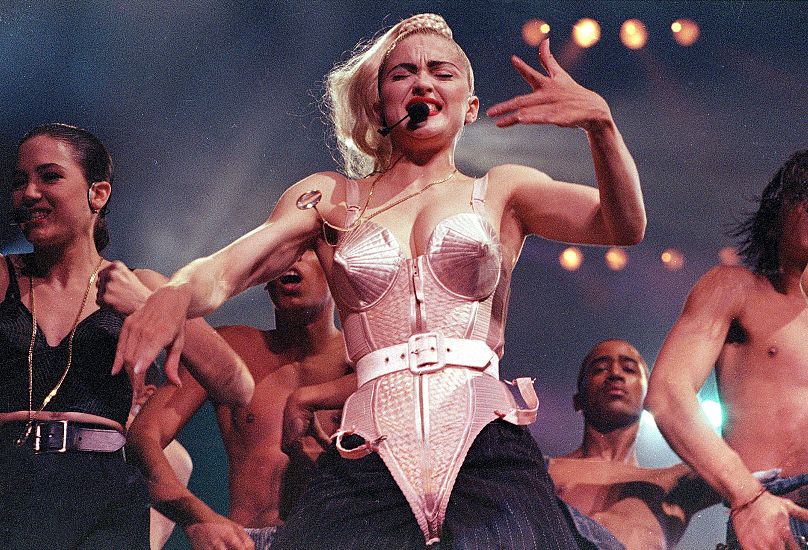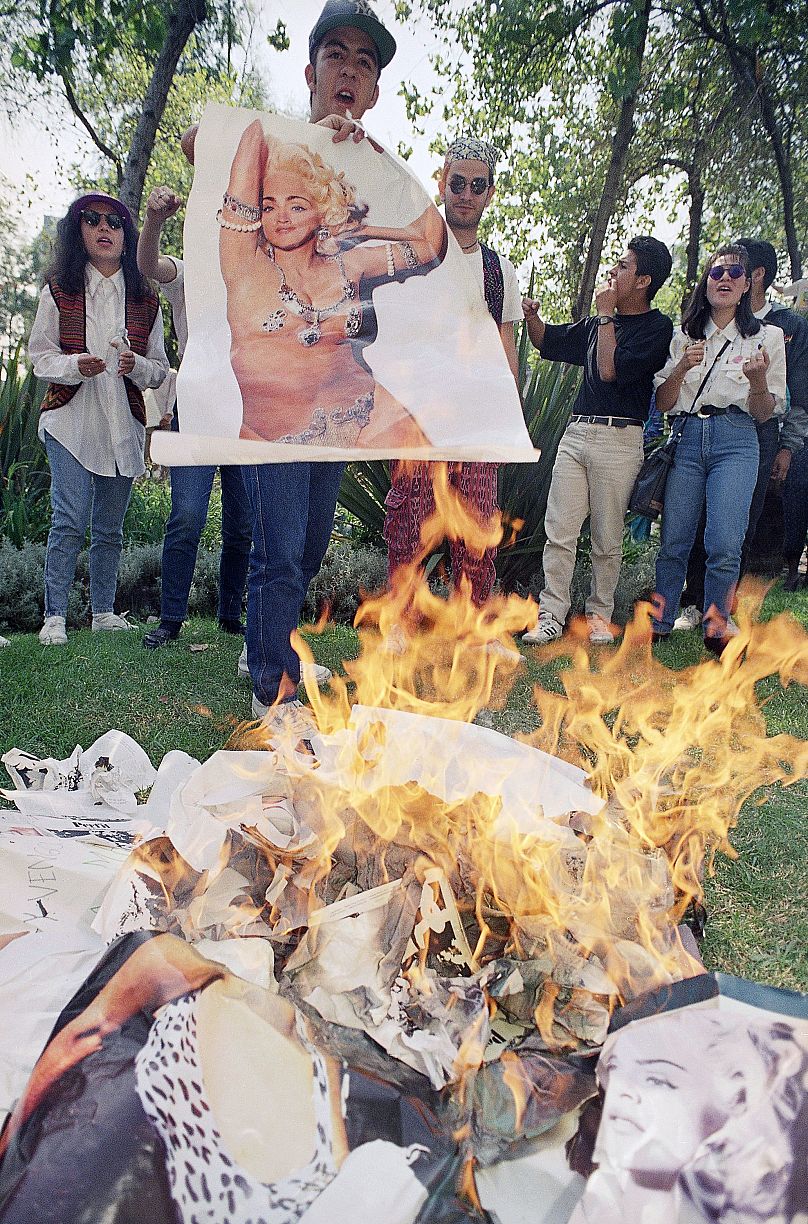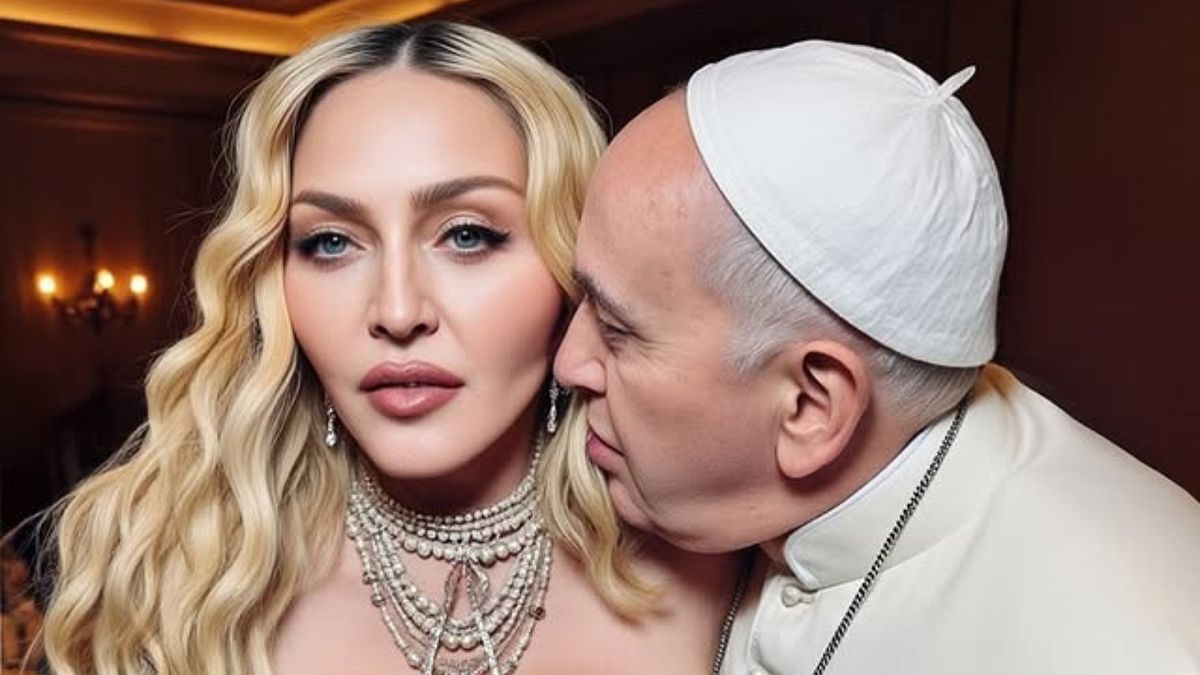Madonna has created a whirlpool of online outrage over a social media post featuring AI-doctored images of the Pope.
On her Instagram story, the 66-year-old singer posted two images of Pope Francis cuddling up to her. In the AI-generated pictures, the Pope has his arm around her lace-dress covered waist with the captions “Going into the weekend like………,” and “Feels good to be seen……”
- Kate Bush joins campaign against AI being used without artists’ permission
- French cinema cancels ‘Last Tango in Paris’ screening after protest of women’s rights activists
In the post, she tagged rickdick_, the social media account that created the images.
Immediately, these images sparked outrage. Among the comments criticising the environmental impact of producing AI images, there was also an outroar from Catholics worldwide.
A post shared by RickDick (@rickdick_)
The Christian community found the images of the Pope in an intimate exchange with Madonna to be “disrespectful” and “unethical”, according to Premier Christian News.
While the images would certainly be compromising to the Pope’s brand if they were real, any suggestion that Madonna has crossed some kind of spiritual Rubicon, is sorely uninformed of the pop icon’s four-decade plus career.
Ever since her rise to stardom with albums like 1984’s ‘Like a Virgin’, Madonna hasn’t shied away from pairing Christian imagery to sexuality, regularly performing with crucifixes as part of her racy ensembles.
This was taken to an apotheosis with the release of 1989’s ‘Like a Prayer’, with a Mary Lambert-directed music video featuring the Catholic-raised singer dancing among burning crosses in reference to the Klu Klux Klan.
The video was banned by many TV stations in the US and then-Pope John Paul II encouraged a boycott of the star.
Throughout her career, Madonna has been no stranger to creating controversy with her unashamed approach to sexuality. The 1992 coffee table book ‘Sex’, featuring her in simulated sex scenes, was a significant display of a globally famous pop star using her sexuality with complete artistic control.

On the religion front, Madonna has also continued to be provocative, making headlines with her public exploration of spirituality through the traditions of Hinduism, Buddhism and Kabbalah.
Thanks to her unabashed use of religious imagery in her music, Madonna has been excommunicated by the Catholic church three times, a point she brought up when she tweeted at Pope Francis two years ago.
“I’m a good Catholic. I Swear! I mean I don’t Swear! It’s been a few decades since my last confession,” he wrote, tagging the Pope’s official account. “Would it be possible to meet up one day to discuss some important matters? I’ve been excommunicated 3 times. It doesn’t seem fair. Sincerely, Madonna”.

To claim that a couple of crudely created AI images of Madonna with the Pope breaks new ground for the ‘Hung Up’ singer is to purposely ignore a key theme for her career.
A fairer criticism of the AI images is that they’re simply not that interesting in the first place. As social media is flooded with lazy AI images of world leaders in uninteresting or compromising situations, this kind of content isn’t titillating. It’s exhausting.
Sadly, this tracks more with Madonna’s ‘Confessions on a Dancefloor’ output post-2005. For all the quality of her 20th work and her more recent powerful statements against ageism, the singer’s never really reached the same height of culturally critiquing controversy.
From her milk-bath “great equalizer” declaration during Covid-19 to accidentally insulting a disabled fan this year, Madonna’s recent controversies feel more like gaffs than provocations.

